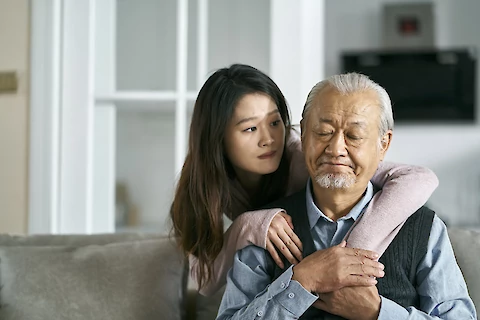
Seasonal affective disorder (SAD) is a type of depression that typically emerges during the darker, colder months of winter. As spring arrives, the warmer weather and longer days often bring relief to those suffering from the condition. But what if your senior loved one's sad symptoms don't change with spring?
Why SAD Might Be Sticking Around
Understanding the reasons behind their prolonged symptoms can provide a basis for finding solutions and offering the support they need.
It's important to remember that the timing of symptom relief varies for each person. While some individuals may experience an immediate improvement as the seasons change, others may take more time to adjust. There's no set timeline for recovery from SAD, so patience is essential.
External factors could be the reason your loved one’s sad symptoms don't change with spring. Stress, whether from personal or environmental factors, can exacerbate the symptoms of depression, making it more difficult for your loved one to recover. Health issues unrelated to SAD could also be prolonging their symptoms. Finally, a lack of exposure to natural sunlight, which acts as a mood booster, could be contributing to the persistence of SAD symptoms.
Another possibility to consider is a misdiagnosis of SAD. An ongoing discussion with their doctor is crucial to ensure proper diagnosis and treatment.
Possible Solutions to Extended SAD Symptoms
What can you do if your senior relative's SAD symptoms don't seem to be improving with the arrival of spring?
Consult Their Doctor
It's vital to communicate your concerns with your loved one's healthcare professional. They can provide insight into possible reasons for prolonged symptoms and may suggest adjustments to the treatment plan. This could include changes in medication, referrals to specialists, or exploration of alternative therapies.
Be Patient and Supportive
Watching your senior relative struggle is difficult, but you must be patient and understanding. Remember that recovery from SAD is a unique process for each individual and may take time. Offer emotional support and encouragement. Remind them they're not alone in this journey.
Participate In Springtime Activities
Encourage your senior loved one to engage in activities that can help boost their mood and overall well-being. Here are some suggestions:
- Outdoor activities: Gardening, nature walks, and outdoor exercise can provide exposure to sunlight, fresh air, and physical activity, all of which can help improve mood. Consult with the senior's physician before beginning a new exercise activity or routine.
- Social events: Plan family gatherings, encourage participation in community events, or look into senior center activities to help your loved one stay engaged and connected to others.
- Increased drop-in companionship: Now that winter weather isn't hindering travel, you can encourage friends and family members to visit the senior more often. You can also look into in-home companion services like those offered through Senior Helpers.
Increase Exposure to Natural Light
Open curtains and blinds, encourage them to spend time near windows, and consider using a daylight-balanced light box to increase exposure to natural light.
Senior Helpers Is Here for You
By being proactive, patient, and supportive, you can provide the help your senior loved one needs to navigate this challenging time. Remember, seeking guidance from healthcare professionals is the best course of action when sad symptoms don't change with spring. The key is to ensure your loved one receives the appropriate care for their needs.
If you're seeking assistance with caring for your senior relative in Hopkinsville, Paducah, Murray, and Madisonville, KY, contact us at Senior Helpers Western Kentucky. Our team of dedicated caregivers will provide the in-home support needed—from assistance with day-to-day self-care tasks to errands and meal preparation—to help your loved one enjoy the brighter days ahead.